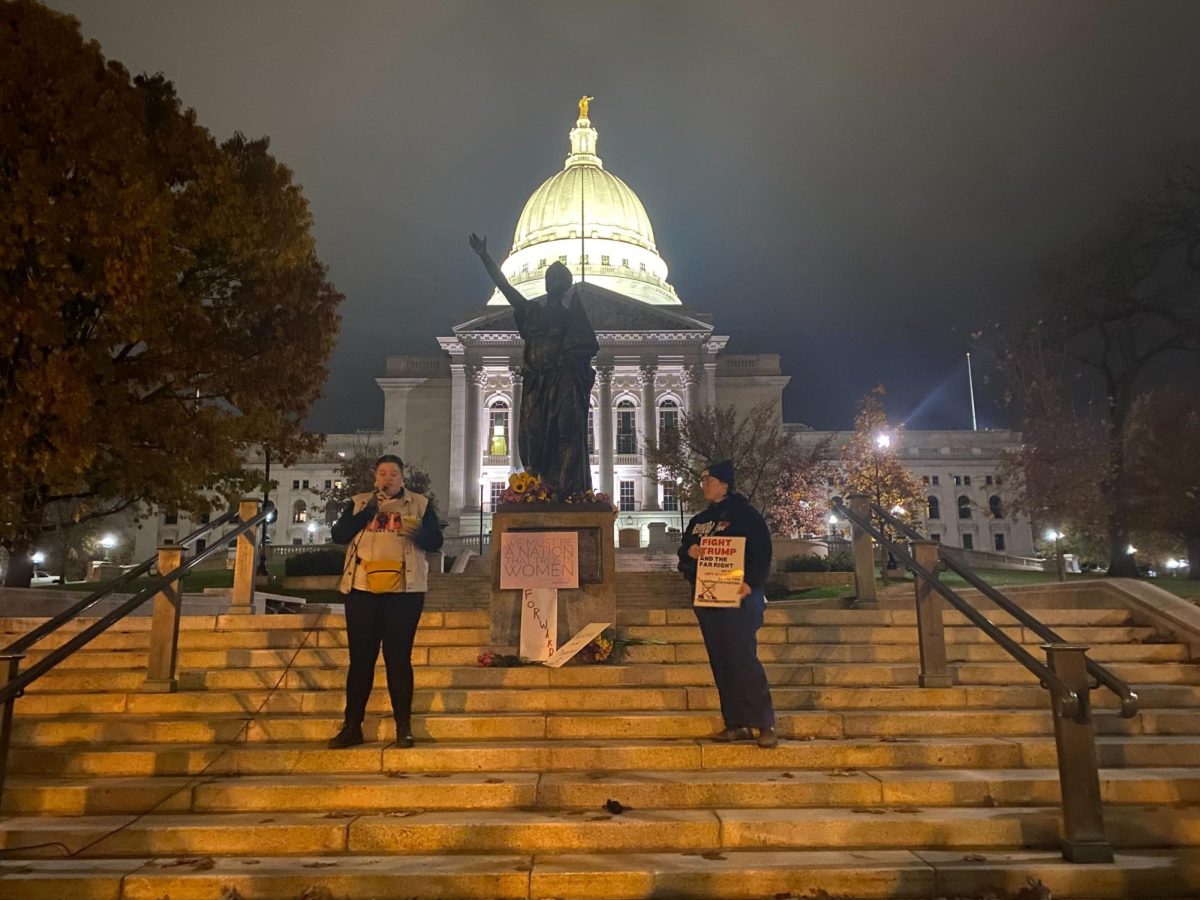As the 2024 election approaches, Wisconsin stands out with the highest number of local election officials in the country, according to an ongoing study by Informing Democracy. Wisconsin’s elections are generally safe, but there are some concerning factors — particularly the influence of conspiracy theories on public trust in the electoral process, according to the study.
Researchers used background checks to identify a small but statistically significant percentage of election officials who pose potential threats to the integrity of the electoral process, according to the study.
Approximately 7% of Wisconsin state election officials have either denied, questioned or attempted to subvert election results, so it has become increasingly important to ensure fair and transparent elections, according to the study.
Wisconsin has a complicated electoral history because — while it has consistently voted in favor of more Republicans — the races have been very close, especially in the last 20 years, according to 270 to Win.
Communications Director of the College Democrats at the University of Wisconsin Whitman Bottari said the Wisconsin Elections Commission is confident in holding a fair upcoming election.
“The Wisconsin Election Commission says that the state is ready for the 2024 election and, generally, that looks to be the case,” Bottari said. “But we have to be on the watch in Wisconsin, and nationally, to ensure that this is a fair and free election.”
Bottari emphasized the need for accountability and said if evidence of bias against election results emerges that could jeopardize voting rights, appropriate action should be taken to remove such officials — irrespective of their political affiliation.
In line with questions of election fraud, a recent settlement has emerged from a lawsuit concerning fraudulent electoral college votes cast for former President Donald Trump following his loss in Wisconsin during the 2020 election, according to Wisconsin Public Radio. As part of the settlement, these individuals admitted that their actions were part of an attempt to improperly overturn the 2020 election results.
In December 2020, the group of false electors admitted to gathering at the Wisconsin State Capitol to cast votes for Trump and misrepresenting their status as lawful electors, according to WPR.
The influence of conspiracy theories has been a primary concern for Wisconsin election officials, Wisconsin State Director of All Voting is Local Sam Liebert said.
“Wisconsin’s election officials are under immense pressure … they’re navigating the landscape with disinformation, personal threats and increased scrutiny — all of which jeopardizes their ability to administer elections fairly and safely,” Liebert said.
The environment of mistrust not only affects officials but also voters, who may feel uncertain about the legitimacy of the electoral process, Liebert said.
Trust in electoral systems is foundational to democracy, Liebert said. Without trust in the electoral process, human rights lose their significance, and rebuilding this trust may take a generation.
“If we don’t have trust in our electoral system everything else doesn’t really matter,” Liebert said. “The right to vote is the first right to protect all other rights. The way our elections are designed in Wisconsin, you’d have to have Republicans and Democrats working together to ‘rig the election,’ and so it’s just not happening.”
Bottari and Liebert stress the importance of fact-checking and responsible information sharing, as these can help identify unreliable conspiracy theories, they said. Bottari said she is confident Wisconsin elections are secure, and she is still teaching the College Democrats at UW about how to point out misinformation.
Liebert warns against the dangers of misinformation, highlighting that if you tell a lie enough, people believe it and even retweeting or resharing the lie adds to the algorithm.
In combating this tide of misinformation, Bottari said she believes bipartisan cooperation is key. The collaborative spirit between Democrats and Republicans in administering elections is crucial, as both sides must ensure that their partisanship does not interfere with the electoral process, according to Bottari.
As Wisconsin approaches the 2024 general election, the study’s findings serve as a reminder of the pressure on election officials, the threats of misinformation and the importance of all stakeholders to safeguard the electoral process, Liebert said.








